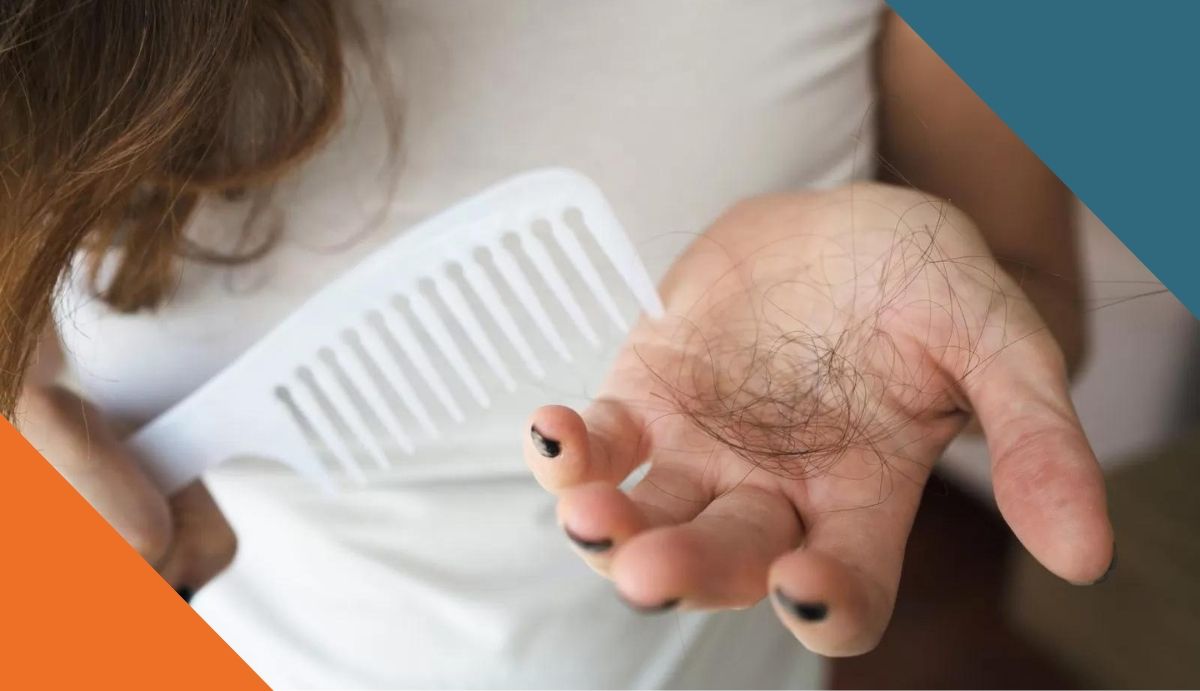Can Stress Cause Hair Loss?
24 February 2021

Very few health related things that happen to our bodies happen in isolation, what do we mean by this?
Our bodies are made up of millions of interconnected systems meaning that if something is happening in one area of our body, more often than not there will be an effect elsewhere as a result.
When it comes to stress there is no exception. There have been many studies into the effects of stress on the body and the side effects that can come with this. Along with others, hair loss can be one of the side effects that many people in stressful situations can experience.
Why does stress cause our hair to fall out?
Stress is the body’s reaction to harmful situations. When we come across a threatening situation, a chemical reaction occurs in our body. This is more commonly known as our ‘fight or flight’ response. In the short term, our heart rate increases, breathing quickens, muscles tighten and blood pressure rises. However, highly stressful situations can have longer-term effects on the body.
Stress-related hair loss
There are four types of hair loss most commonly associated with stress: Telogen Effluvium (excessive daily hair shedding), Alopecia Areata (hair loss in specific areas), Trichotillomania (hair pulling) and Androgenic Alopecia (thinning of the hair).
What is Telogen Effluvium?
Telogen effluvium occurs when a large number of hair follicles are suddenly shifted into the “telogen” or resting phase of the hair growth cycle. It is often categorised by the thinning or increased shedding of the hair. This form of hair loss is usually more common in women and can be stress induced.
Our hair follicles are constantly cycling between growth and rest. The majority of the time, our hair is in the growth or ‘anagen’ phase. When we transition into the resting or ‘telogen’ phase, shedding of the hair occurs.
It is important to note that this hair loss won’t be instant. Most often, hair loss will be seen around 6 to 12 weeks after the high stress event due to the natural growth cycle of the hair. You will tend to notice that you are losing more hair when you brush or that there is more hair on your pillow when you wake up. Stress is one of the most common causes of telogen effluvium, this is often attributed to the link between stress and digestion. The body will not absorb the vital nutrients that it needs and as non-essential tissue, hair is often the first to be affected by this.
Other forms of hair loss that can be attributed to stress
Stress and Alopecia Areata
Alopecia Areata is another form of hair loss that can be attributed to stress. It is characterised by hair loss in ‘patches’ on the scalp. It is widely accepted as an autoimmune disease meaning that the body sees certain hair follicles as a foreign body and will attack them.
Does stress cause Androgenic Alopecia?
Androgenic Alopecia is often known as male or female pattern baldness. This form of hair loss is usually gradual and early signs include thinning of the crown, top of the scalp or temples creating the appearance of a receding hairline. While this type of hair loss is genetic, stress can intensify the process, making the loss of hair more pronounced.
What is Trichotillomania?
Trichotillomania is the act of pulling your own hair out due to irresistible urges and is classified as an obsessive-compulsive psychological condition. The act of pulling hair is often used as a coping mechanism for stress or anxiety. For sufferers, a sense of relief is felt once the hair is pulled out.
Ways to combat stress-related hair loss
In general, the best way to combat stress-related hair loss is to identify the cause of your stress and find ways to manage and reduce it. Stress management can often be difficult, some simple activities such as meditation, walking, exercise and mindfulness have all been proven to aid in reducing stress. Implementing these practices into your life can often have a positive impact on your overall stress levels.
Coronavirus has been a source of stress for many people in the last year. The uncertainty around the situation has meant increased levels of stress and has harmed mental health. It is important to remember that you are not alone in feeling this way. Dealing with stress can be hard and is different for each person. The NHS recognises that stress due to COVID-19 is an issue many people are facing and they have written a guide with their top ten tips to help people with this.
However, it is also important to remember that if you are concerned about how you’re dealing with stress or feeling overwhelmed with the whole situation, it is always best to consult a professional for advice.
At Optima, we are experts in all forms of hair loss and have helped thousands of clients, both men and women through their hair loss journey. Why not book a free consultation with one of our hair experts today to find out how we can help?
